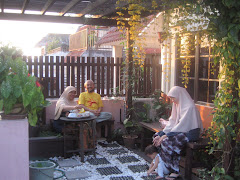Diabetes mellitus ia a condition which results from a lack of insulin. Insulin is a hormone produced by the pancreas. It is needed for the assimilation of glucose, amino acids and fatty acids by the body for energy or storage. Defiency of or ineffectiveness of insulin results in high glucose level in the blood. The disease cannot be cured but it can be controlled by lifelong treatment. There are two major types of diabetes mellitus. Type I (insulin-dependent) occurs mostly in young people and requires regular insulin injections. Type II (non-insulin dependent) occurs mainly in older people: some can be controlled with proper diet and exercise alone; and others may need antidiabetes medication. Some may also need insulin injections. Most of those who suffer from non-insulin dependent diabetes are overweight or obese. Diabetes tends to run in families.
Symptoms
Complications
Cause
What you can do
What your doctor can do for you
If you are or suspect you may be pregnant, take extreme care about any medicine you take, particularly during the first 12 weeks - consult your doctor or pharmacist.
2. Examine the feet daily for any blister, sore, scratch, skin discolouration, calluses or ingrown toenails. See a doctor immediately if any of these symptoms appear.
3. Change socks or stockings daily. Cotton or wool socks are better as nylon can cause perspiration.
4. Wear soft leather shoes to allow the skin to breathe.
5. Wash feet daily with luke warm water & mild soap.
6. Cut your nails straight across. Gently file rough edges.
7. Keep the skin, heels & soles supple by applying lanolin, but do not apply between toes. If you tend to perspire, dust feet with foot powder or baby powder.
8. Examine your shoes everyday for cracks, pebles, nails & any roughness which may cause skin irritation.
9. Do not walk barefoot either indoors or outdoors. Wear comfortable shoes, slippers or sandals that fit well.
DON'T: a. Soak feet in hot water or use hot water bottle for the feet. b. Use com plasters & other commercial foot preparations.
Prevention tips
Helplines
Malaysian Diabetes Association 03-750 2385
This article is reffered to Malaysia Healtcare Guide - The family health guide MIMS 2nd edition 1997 page 323-325
Symptoms
- Constant thirst.
- Polyuria or frequent urination. Getting up frequently to pass urine at night.
- Frequent hunger, strong appetite.
- Weight loss despite a hearty appetite.
- Tiredness, weakness.
- Tingling sensation and numbness in the hands and feet.
- Blurred vision.
- Recurrent skin infections.
- Itching in the private parts.
Complications
- Severe hyperglycemia (too much glucose in the blood) with too much acid in the body, can cause confusion and loss of consciousness. (See LOSS OF CONCIOUSNESS page 415.)
- High blood pressure, heart disease, stroke, and kidney damage.
- Blindness (due to retinal damage), cataracts, and other eye disorders.
- Poor healing of wounds.
- Gangrene (tissue death) due to cut off of blood supply. This usually occurs in the toes and feet.
- Infection, in particular skin, and soft tissue, vaginal infection.
- Numbness, due to nerve damage with loss of sensation especially the feet.
Cause
- Not fully known yet. However, it is beliaved to be due to:
- Heredity.
- An autoimmune disorder. The body's defences attack and destroy the cells in the pancreas that produce insulin.
- A viral infection that damages the pancreas which may than set off an autoimmune process.
- Lack of exercise, poor dietary habits and obesity.
What you can do
- Consult a doctor if you think you have diabetes.
- Stick to a lifelong low-sugar, low-fat, high fibre diet. If overweight, lose weight. Contol your intake of refined sugar. Spread out intake of food over the day. (Diet and weight management are often enough to keep non-insulin dependent diabetes in check and may prevent diabetes-prone people from developing diabetes.)
- Exercise regularly.
- Regularly look over your body, especially the feet, for wounds or infection; never walk bare foot. Wash your feet daily, dry them thoroughly, and apply talcum powder. Take extra care when cutting your fingernails and toenails. Shave with care.
- Practice good hygiene.
- Maintain good dental health.
- Take prescribed medicine religiously. Never stop medication without consulting your doctor.
- Monitor your blood or urine sugar regularly.
- Have regular medical checkups.
What your doctor can do for you
- Take blood tests initially to confirm the presence of diabetes and subsequently to check whether blood sugar is under control.
- Recommend an appropriate diet regimen and exercise.
- Prescribe anti-diabetes tablets or insulin injections if necessary. Teach you how and where to inject insulin on yourself.
- Teach you how to monitor the glucose level in your blood.
- Watch out for the development of complications and treat them.
If you are or suspect you may be pregnant, take extreme care about any medicine you take, particularly during the first 12 weeks - consult your doctor or pharmacist.
Injection sites for insulin:
1. Abdomen - fast absorption 2. Arm - intermediate absorption 3. Thigh - slow absorption 4. Buttock - slow absorption 5. One hand's width from shoulder, elbow, hip and knee 6. Skin 7. Subcutaneous tissue 8. Muscle 9. Inject insul;in into subcutaneous tissue into the fat (between skin & muscle layer)Foot care for diabetics:
1. Dry the feet well especially between toes to prevent fungal growth.2. Examine the feet daily for any blister, sore, scratch, skin discolouration, calluses or ingrown toenails. See a doctor immediately if any of these symptoms appear.
3. Change socks or stockings daily. Cotton or wool socks are better as nylon can cause perspiration.
4. Wear soft leather shoes to allow the skin to breathe.
5. Wash feet daily with luke warm water & mild soap.
6. Cut your nails straight across. Gently file rough edges.
7. Keep the skin, heels & soles supple by applying lanolin, but do not apply between toes. If you tend to perspire, dust feet with foot powder or baby powder.
8. Examine your shoes everyday for cracks, pebles, nails & any roughness which may cause skin irritation.
9. Do not walk barefoot either indoors or outdoors. Wear comfortable shoes, slippers or sandals that fit well.
DON'T: a. Soak feet in hot water or use hot water bottle for the feet. b. Use com plasters & other commercial foot preparations.
Recommended exercises for diabetics:
1. Tiptoe exercise: Hold on to a chair. Raise & lower yourself on your toes alternately. Repeat 20 times. 2. Leg swing: Hold on to a table & stand with one leg slightly raised on a thick book. Swing the other leg to & fro 10 times. Repeat the same procedure on the other leg 10 times. 3. Calf stretch: Lean with palms of your hands against the wall. Keep your feet some distance away and flat on the floor. Bend your arms 10 times keeping your back and knees straight without raising the heel. Sustain the stretch for 10 seconds. 4. Knee bend: Hold on to a chair & do deep knee bends keeping your back straight. Repeat 10 times (start with 5 times & increase gradually). 5. Daily walk: Take a walk daily of 1/2 - 1 hour. Try to increase duration every week. 6. Ball roll: Sit on a straight backed chair, with your foot on a rubber ball. Grip the ball with your toes, then relax your hold. Repeat a few times for each foot.Prevention tips
- Avoid refined sugar, honey and excessive intake of sweets and simple carbohydrates, fats and salt.
- If overweight, reduce weight.
- Exercise regularly. Aerobic exercise (eg. cycling, jogging, vigorous sports, swimming, brisk walking), decreases the risk of heart disease, helps control your weight, and helps the body to maximise the effects of insulin.
- If you have a family history of diabetes and you are over 40 years, have your blood checked for sugar 2 hours after a good meal. You should repeat this every year or two as many people have diabetes for years without feeling unwell.
Helplines
Malaysian Diabetes Association 03-750 2385
This article is reffered to Malaysia Healtcare Guide - The family health guide MIMS 2nd edition 1997 page 323-325





4 comments:
apasal banyak about kesihatan pula.. is it your new interest? Tak pe keep it up. But don't forget the practical aspect :)
Sbb saya takut awak2 semua tak baca info kesihatan ni kat tempat2 lain..he..he.. kira paksa lah ni..
Kan obes, arthritis, gout, migrain/sakit kepala tu ada kaitan dgn kita2 semua.. pah tu ada pulak forbidden food utk masalah2 ni..dan diabetes tu menakutkan bila saya baca..
Lps ni ada satu lagi topik.. psoriasis.. masalah kulit kepala berkerak.. yg berkaitan dgn saya kot.. dah siap taip.. tunggu masa utk publish je..
Baca jgn tak baca..jgn awak scan aje dah..
Satu lagi..saya taip je..tak payah nak fikir2 construct idea..
Alim tulis pula:
Assalamualaikum Maksu, Maksu buat apa hari esok di rumah nanti? Maksu tahu tak, sekolah AGAMA Alim kan, Alim dapat nombor 2 peperiksaan akhir tahun. Pada mlm 7 NOVEMBER ada murid cemerlang ambil hadiah, Alim pun ambil hadiah juga, mula pukul 7.30 mlm hingga 11.00 mlm. Hadiah Alim kan beg sekolah baru. Dalam beg sekolah kan, ada hadiah set alat tulis. Ada pensil, pemadam, pembaris, sharpener, pensil box, dan buku nota kecil. Tapi kan, Yong jaga Alim dekat sekolah AGAMA, ibu kan duduk rumah jaga mok. Alim boleh masuk darjah dua MEKAH.
Sekolah Ampang Alim kan, cikgu bagi hadiah kan, 1 sampai 13 tapi kan, cikgu balik kampung.
Ni saya tulis pulak, dia dah penat.. sbb +- 10 kali dok taip/semak tulisan dia.. sambil dok tgk karton Mr. Been.. dan dah lps satu kartoon lain.. skrg dah masuk kartoon lain pulak.. Boring juga kot dok dgr saya ajar dia edit..
Saya tanya tak nak ucap tk kat Maksu ke...Maksu bagi hadiah buku cerita..dia kata ibu tulislah..Alim dah penat!
Tk ya!
baru je lepas sakit kepala, selsema n demam, ni anak2lak pakat2 selsema, hubbylak hari ni baru start sok sek2x
tahniah alim!
Assalamualaikum kak Ida,kak Ida, yang Alim tulis tentang sekolah Ampang tadi kan,Alim ada tinggal tulis cerita Alim dapat nombor berapa? Jawapannya kan nombor 12, hadiah biasa. Yang dapat nombor 1,2,3 kan hadiah istimewa. Yang dapat nombor 4,5,6,7,8,9,10,11,12,13 kan hadiah biasa.
Hari semalam kan Alim tak sihat, ada demam, selsema dan batuk. Hari ni pun tak sihat juga, hari ini dan esok. Itu sahaja.
Ibu tulis pula :
Agaknya dia mula rasa tak sihat sepulang dr majlis khatam Quran dan penyampaian hadiah utk pelajar cemerlang mlm tu.. lps tu dia temankan mok tidur kat bwh.. mok kata dia mengigau dan bangun berjln mlm.. esoknya/Sabtu dia dah nampak krg sihat..semlm/Ahad ingatkan dia dah ok..tp masa kat rumah Maksu tu dia tido tak bgn2 hingga org kejut dah dekat nak balik..sbnrnya sedari mula naik kereta lagi dia dah tido..ingatkan sbb dia takleh nak bbuah..pastu baru perasan dia masih berkeadaan spt semlmnya..hingga ke hari ini..so tak pegi sekolah pg dan ptg tadi..sekolah pagi tu mmg cuti sempena majlis pd mlm tu..dah ambil ubat dah mlm tadi kat klinik..
Post a Comment